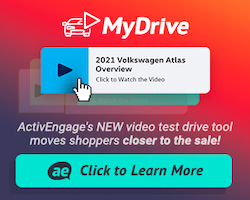News broke in June that Amazon is recruiting car sales executives and may soon start directly selling cars throughout Europe. Amazon Vehicles has already broken into the Italian car sales market, acting as an online sales service for several Fiat models, with buyers picking up their car from brick and mortar dealerships. Market analysts say it is only a matter of time before Amazon becomes a major player in direct car sales across the market.
Amazon has the competitive advantage of catering to the growing segment of online car shoppers. What they are losing out on is post-purchase customer service.
What does this mean for traditional auto dealerships? To compete with Amazon and other web-based retailers, dealerships need to shift their sales staff from focusing on selling cars to enhancing the customer experience. According to Autotrader, 54 percent of consumers would buy from dealerships who provide better experiences compared to lower prices. Capitalizing on their ability to provide face-to-face, fast and easy customer service will be essential for traditional dealerships to remain competitive.
The selling process needs to be streamlined, expedient and focused on customer needs to win over consumers. This will solidify the relationship with customers, encourage them to return to your dealership for any service issues and show customers that dealerships can offer benefits beyond what online retailers can.
Let’s find out how…
Better Hiring for a Better Customer Experience
Your customer service is only as good as the people you hire. Successful hiring begins with a well thought out hiring processes that align with your larger operational goals, including improving customer service and other hiring objectives.
Create and Follow a Hiring Process
Following a standardized process is the first step in clearly defining your hiring process and goals. If you’re hiring with the idea of improving customer service, you can more easily develop concrete steps in your hiring process to attract and hire candidates who fit your needs. For example, a critical early-stage action dealerships can take is using pre-screening surveys to see how candidates would respond in specific situations to demonstrate a strong commitment to customer experience.
Set Clear Expectations
It’s critical to be specific and transparent at the onset of hiring – beginning with your job description. Make it clear in your job description that you’re looking for candidates who value a positive customer experience and that customer service is ingrained in your dealership’s culture. In a recent interview, one of Honda’s best sales leaders Jason Graciano emphasized the importance of setting clear expectations and having a company vision for recruitment: “It’s very difficult for a person to be a leader if [they] don’t have a vision or a direction in which they are headed,” said Graciano. “You have to be able to provide that vision, energize those people and convince them, ‘this is where we’re going, and this is why you should come with me.’”
Focus on Soft Skills
Too often dealerships – and other companies – get caught up in required experience instead of necessary skills to succeed in a given role. Focusing on customer-oriented people with good interpersonal skills can be more beneficial in ensuring quality hires than the candidate’s years of dealership experience.
How to Continue Focusing on the Customer Experience
Once you’ve hired the right people, it’s essential to sustain a dealership culture centered on customer experience. There are several ways you can continue to uphold the high standard you have set for your dealership:
Understand the Customer’s Perspective
The key advantage dealerships have over online sales is direct, face-to-face access to customers. Regularly ask customers for feedback and how you can improve their experience. If you don’t get enough direct feedback, pay attention to your customers on review sites like Yelp or your Google My Business page. Actively listen to your customers and the interactions they have with your employees when they’re in your dealership, and make an effort to track customer interactions with specific employees through your customer relationship management (CRM) software and talent management system.
Introduce Product Specialist Roles
Dealerships are increasingly moving toward product specialist roles and away from traditional sales positions. By design, product specialists are oriented toward improving customer experience instead of hard selling. Customers shop at their own pace, while still having access to a product specialist who can provide additional information about the cars they are considering. Product specialists are more equipped to build healthy relationships with customers, since they serve as a guide for purchase, help expedite the buying process and can walk customers through setting up car technology post-purchase.
Humanize Your Dealership
Although technical skills are more important for technicians, make sure your service managers are customer-friendly. They will be the ones answering service calls and directly interacting with customers. Look for service managers with good interpersonal skills, who can convert one-time service customers into repeat business. Encourage all your employees to be energetic and inviting, and cultivate a relaxed and fun environment.
Moving Forward
A superior customer experience should be your dealership’s primary focus to cultivate strong customer loyalty and remain competitive in the market. As online retailers enter the market, traditional car dealerships need to ramp up customer experience initiatives to get customers through their doors, return for service and generate referral business. A valuable, face-to-face experience, as well as fast and convenient service offerings, differentiate dealerships from digital retailers.








Current Discussion Topics